-
 The Fugitive Slave Act of 1850 was a strict federal law passed as part of the broader Compromise of 1850 that required citizens in free states to assist in the capture of escaped slaves
The Fugitive Slave Act of 1850 was a strict federal law passed as part of the broader Compromise of 1850 that required citizens in free states to assist in the capture of escaped slaves -
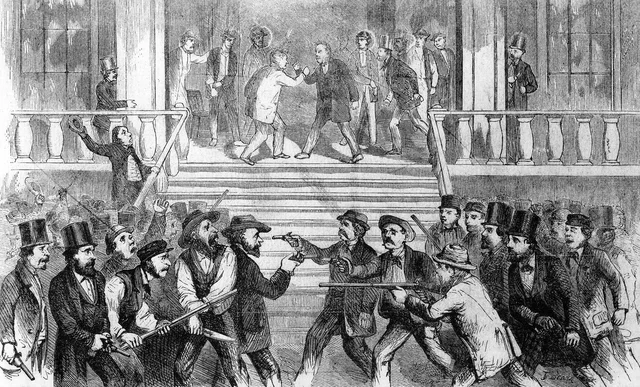 Bleeding Kansas was a violent pre-Civil War struggle between pro-slavery and anti-slavery settlers in the Kansas Territory from approximately 1854 to 1859.
Bleeding Kansas was a violent pre-Civil War struggle between pro-slavery and anti-slavery settlers in the Kansas Territory from approximately 1854 to 1859. -
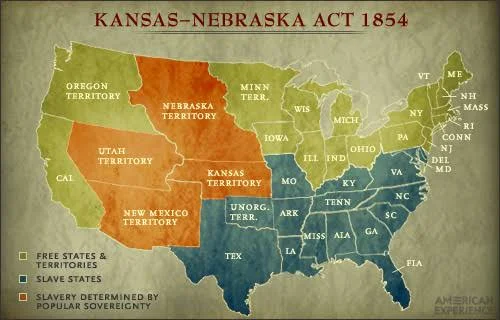 it repealed the Missouri Compromise and allowed residents of the new Kansas and Nebraska territories to decide on the issue of slavery through "popular sovereignty".
it repealed the Missouri Compromise and allowed residents of the new Kansas and Nebraska territories to decide on the issue of slavery through "popular sovereignty". -
 The Dred Scott v. Sandford case was a landmark 1857 Supreme Court decision that ruled African Americans were not U.S. citizens, therefore they could not sue in federal court. The ruling also declared the Missouri Compromise unconstitutional.
The Dred Scott v. Sandford case was a landmark 1857 Supreme Court decision that ruled African Americans were not U.S. citizens, therefore they could not sue in federal court. The ruling also declared the Missouri Compromise unconstitutional. -
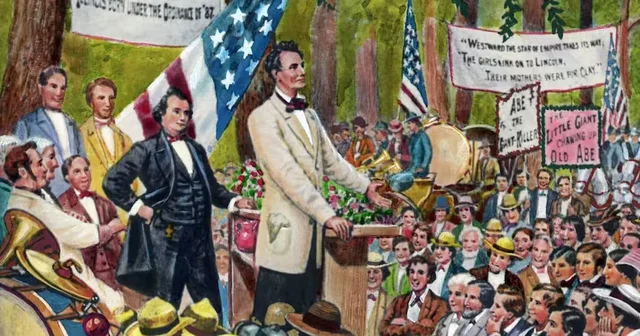 The Lincoln-Douglas debates were a series of seven debates in Illinois between August 21 and October 15, 1858, primarily focused on the expansion of slavery into western territories
The Lincoln-Douglas debates were a series of seven debates in Illinois between August 21 and October 15, 1858, primarily focused on the expansion of slavery into western territories -
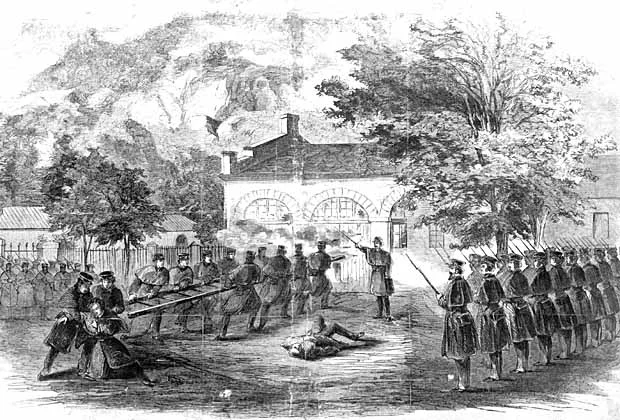 when the abolitionist John Brown led a small group to seize the federal arsenal in Harpers Ferry, Virginia. His plan was to arm enslaved people to start a rebellion, but the raid was quickly stopped by local militias and U.S. Marines
when the abolitionist John Brown led a small group to seize the federal arsenal in Harpers Ferry, Virginia. His plan was to arm enslaved people to start a rebellion, but the raid was quickly stopped by local militias and U.S. Marines -
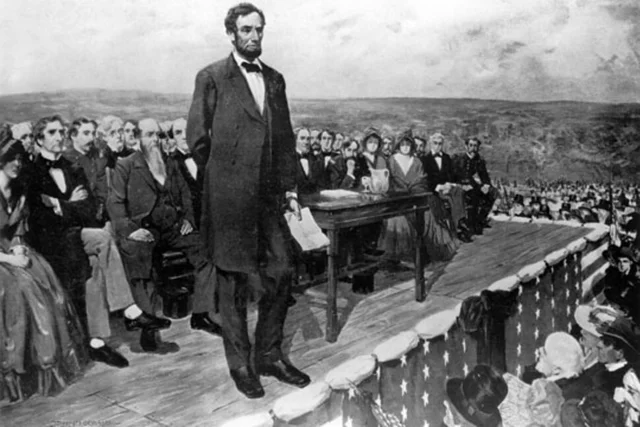 The split within the Democratic Party resulted in multiple candidates, but Lincoln, representing the Republican Party, won a majority of the Electoral College votes despite receiving only 40% of the popular vote.
The split within the Democratic Party resulted in multiple candidates, but Lincoln, representing the Republican Party, won a majority of the Electoral College votes despite receiving only 40% of the popular vote.